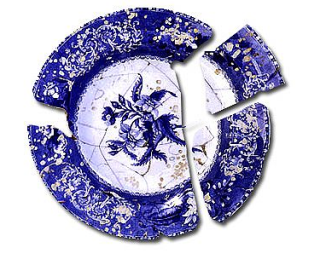John Burns
Blog
Why Your Estate Plan is Worthless – Part IV and Final
Apr 9, 2018
 In the prior installments in this series, I have addressed a number of issues which can render the best estate plans worthless. These include failing to complete the work needed to implement the estate plan, failing to adapt to changing circumstances and appointing the wrong people to serve in fiduciary roles.
In the prior installments in this series, I have addressed a number of issues which can render the best estate plans worthless. These include failing to complete the work needed to implement the estate plan, failing to adapt to changing circumstances and appointing the wrong people to serve in fiduciary roles.
In this last installment, I want to address two other issues: Failing to have all of the necessary documents in place and failing to address personal property.
Necessary Documents: In the traditional sense, “estate planning” is often focused on events and property dispositions occurring after death. Much of my practice, however, is focused on “Life Care Planning”, and as a result, I strive to ensure that my clients have the necessary pieces in place to ensure their comfort, care and safety for the remainder of their lives. Yes, wills and trusts and other “death” stuff is part of that, but I am primarily focused on the well-being of my clients for the remainder of their lives.
Often a person will have a will, perhaps even a properly funded trust, but they do not have powers of attorney, advance directives and the like. When incapacity occurs, no one is authorized to make decisions for them. Often this is the result of not wanting to burden a child with too much responsibility. Other times, a parent does not want to choose between or among children when appointing a decision maker. However (and with few exceptions), having a poor decision maker in place is better than not having one at all. After all, they can hire advisors to assist if they realize that they are in over their heads. So, while wills and trusts are important, they may not take effect until after you are long gone. Make sure that you have the necessary financial and healthcare directives in place so that your family or trusted advisors can manage your affairs for the remainder of your life.
Personal Property: The other issue that needs to be addressed is personal property and its disposition. Based on my experience, nothing – absolutely nothing – will cause more contention in an estate than who gets Aunt Trudy’s china, and that’s if you are lucky. I remember a hot July day that I spent with a family in Mississippi that was, to put it mildly, “estranged” from one another. While the administrator and I were talking over details of cleaning out the house in preparation for an upcoming estate sale, one contingent of the family was literally “dumpster diving” to retrieve dear ol’ dad’s priceless “valuables.” In the background I could hear exclamations of “They don’t know what they are throwin’ away” and “There’s not going to be anything of value left to sell if they fill up this dumpster.” The point is that if you have collectibles of value – actual or merely sentimental – consider giving them away during your lifetime to those that would appreciate or benefit from them.
On the other hand, if you are more of the mindset of my father and are “not through enjoying it”, then you have a couple of great choices. One option is a personal property memorandum. I routinely put a provision in my wills that references a handwritten personal property memorandum whereby the client can state in a separate writing who gets what tangible personal property. You can change it as often as you like, and it does not require redoing the entire will.
The other option is to call in the children and tell them what they are getting or let them pick now. I had a client who had some valuable antiques, silver, china and jewelry. She was wise and did not want to diminish the good relationship that existed among her three daughters. She met with her three daughters one Saturday morning and let each pick what she wanted. A list was made and each daughter had a copy. I think that post-its were even stuck to the bottoms and backs of furniture. When the client died a few years later, there were no issues. Each daughter knew exactly what she was getting when mom’s house was emptied. No muss; No fuss!


